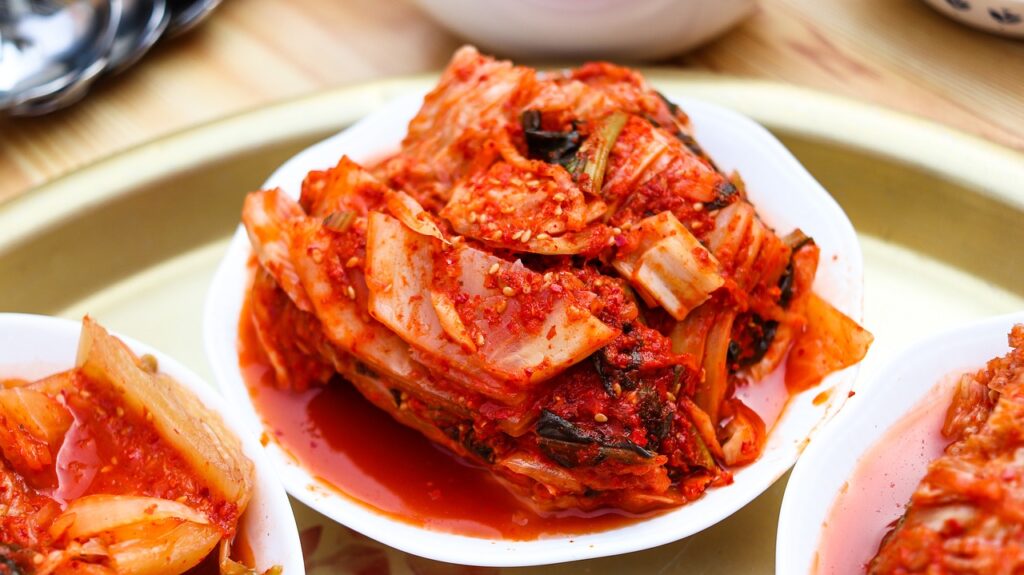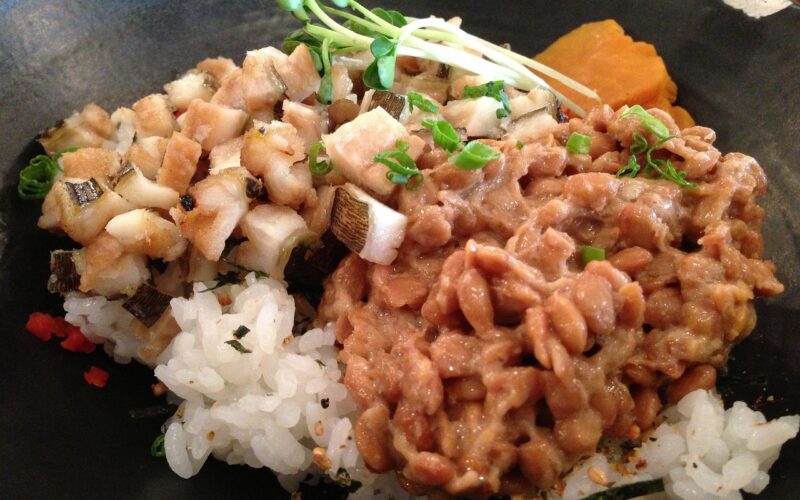Ulcerative colitis, a form of inflammatory bowel disease (IBD), can significantly impact one’s quality of life due to symptoms like abdominal pain, diarrhea, and fatigue. While medical treatments play a crucial role in managing the condition, dietary interventions, particularly the inclusion of fermented foods, can offer valuable support in alleviating symptoms and promoting gut health. In this article, we delve into nine fermented foods known for their potential to improve ulcerative colitis and overall digestive well-being.
Yogurt
Yogurt is not only delicious but also a potent source of probiotics, particularly strains like Lactobacillus acidophilus and Bifidobacterium bifidum. These probiotics help restore the balance of beneficial bacteria in the gut, which is often disrupted in individuals with ulcerative colitis. By promoting a healthy microbiome, yogurt can alleviate symptoms such as diarrhea, abdominal pain, and bloating. Additionally, yogurt is rich in calcium and vitamin D, which are essential for bone health, an important consideration for individuals with IBD who may be at increased risk of osteoporosis due to factors such as inflammation and corticosteroid use.
Commercially available yogurt often contains added sugars, which can inadvertently nourish harmful bacteria in our gut. While store-bought options may tout the inclusion of beneficial probiotics, the presence of excess sugar can counteract their potential benefits. Crafting your own yogurt at home provides an opportunity to oversee the ingredients, ensuring a healthier alternative. By opting for homemade yogurt, you not only gain control over sugar content but also have the freedom to enhance flavor with nutritious additions like fresh fruits.
Sauerkraut
Sauerkraut is made by fermenting cabbage with lactic acid bacteria, resulting in a tangy and crunchy condiment rich in probiotics. The probiotics in sauerkraut help strengthen the intestinal barrier, reducing inflammation and promoting healing in the gut. Additionally, sauerkraut is high in fiber, which supports healthy digestion and bowel movements. Including sauerkraut in the diet can help individuals with ulcerative colitis maintain remission and reduce the frequency and severity of flare-ups.
Kimchi

Kimchi, a staple in Korean cuisine, is similar to sauerkraut but often includes additional ingredients like radishes, garlic, and chili peppers. Like sauerkraut, kimchi undergoes fermentation by lactic acid bacteria, resulting in a probiotic-rich food with potential benefits for gut health. The probiotics in kimchi help modulate the immune response in the gut, reducing inflammation and supporting overall digestive well-being. Additionally, kimchi is rich in vitamins A and C, as well as antioxidants, which further contribute to its anti-inflammatory properties.
Kombucha
Kombucha is a fermented tea beverage produced by fermenting sweetened tea with a symbiotic culture of bacteria and yeast (SCOBY). The fermentation process yields a tangy and slightly effervescent drink rich in probiotics, enzymes, and organic acids. Drinking kombucha can help improve gut health by promoting the growth of beneficial bacteria and reducing inflammation in the digestive tract. Additionally, the antioxidants present in kombucha help protect the gut lining from oxidative stress, supporting overall digestive well-being and potentially reducing the risk of flare-ups in individuals with ulcerative colitis.
When it comes to Kombucha, it’s crucial to be mindful of added sugar, as it can inadvertently fuel harmful gut bacteria. That’s why we recommend Humm Probiotic Kombucha with Zero Sugar—a choice that prioritizes gut health without compromising on taste or nutrition.
Miso
Miso is a traditional Japanese seasoning made from fermented soybeans, salt, and koji (a type of fungus). It is commonly used in soups, marinades, and dressings, imparting a savory umami flavor. Miso is rich in probiotics, particularly strains like Lactobacillus and Bifidobacterium, which support gut health by promoting a healthy balance of bacteria in the gut. The probiotics in miso help reduce inflammation and promote healing in the intestinal lining, making it beneficial for individuals with ulcerative colitis. Additionally, miso is high in protein and contains essential amino acids, vitamins, and minerals, further contributing to its nutritional value.
Can’t find Miso locally? No worries, this YUHO Organic Shiro White Miso Paste is a great choice and can be ordered from Amazon.
Tempeh
Tempeh is a fermented soy product originating from Indonesia, made by fermenting soybeans with a mold called Rhizopus oligosporus. The fermentation process results in a dense, chewy cake rich in probiotics, protein, fiber, and various micronutrients. Consuming tempeh can help improve gut health by promoting the growth of beneficial bacteria and reducing inflammation in the digestive tract. Additionally, tempeh is a complete protein source, containing all nine essential amino acids, making it particularly beneficial for individuals with ulcerative colitis who may have increased protein needs due to inflammation and malabsorption.
Pickles
Pickles are cucumbers that have been fermented in a brine solution of water, salt, and sometimes spices. The fermentation process results in a tangy and crunchy snack rich in probiotics. Consuming pickles can help improve gut health by promoting the growth of beneficial bacteria and reducing inflammation in the digestive tract. However, individuals with ulcerative colitis should opt for homemade or low-sodium pickles to avoid triggering symptoms like bloating and gas.
Kefir
Kefir is a fermented dairy product similar to yogurt but with a thinner consistency and a slightly tangy flavor. It is produced by fermenting milk with kefir grains, which are a combination of bacteria and yeast. Kefir is rich in probiotics, vitamins, minerals, and essential amino acids, making it a powerhouse of nutrients for gut health. The probiotics in kefir help restore balance to the gut microbiome, reducing inflammation and promoting healing in the intestinal lining. Additionally, kefir is high in calcium and vitamin D, which support bone health, an important consideration for individuals with ulcerative colitis who may be at increased risk of osteoporosis.
Natto
Natto is a traditional Japanese dish made from fermented soybeans, typically served with rice and condiments like soy sauce and mustard. It has a distinctive flavor and slimy texture, resulting from the fermentation process. Natto is rich in probiotics, particularly Bacillus subtilis, which supports gut health by promoting a healthy balance of bacteria in the gut. Additionally, natto is high in vitamin K2, which supports bone health and may help reduce the risk of osteoporosis in individuals with ulcerative colitis. Despite its unique taste and texture, natto can be a valuable addition to the diet for individuals seeking to improve their gut health and manage symptoms of ulcerative colitis.
Fermented Wrap Up
Incorporating fermented foods into the diet can be a valuable strategy for improving ulcerative colitis and promoting overall gut health. The probiotics, vitamins, minerals, and antioxidants found in fermented foods help restore balance to the gut microbiome, reduce inflammation, and promote healing in the digestive tract. By including yogurt, sauerkraut, kimchi, kombucha, miso, tempeh, pickles, kefir, and natto in your diet, you can take proactive steps towards alleviating symptoms and improving your quality of life with ulcerative colitis. As always, it’s essential to consult with a healthcare professional before making significant dietary changes, especially if you have a chronic condition like ulcerative colitis.



